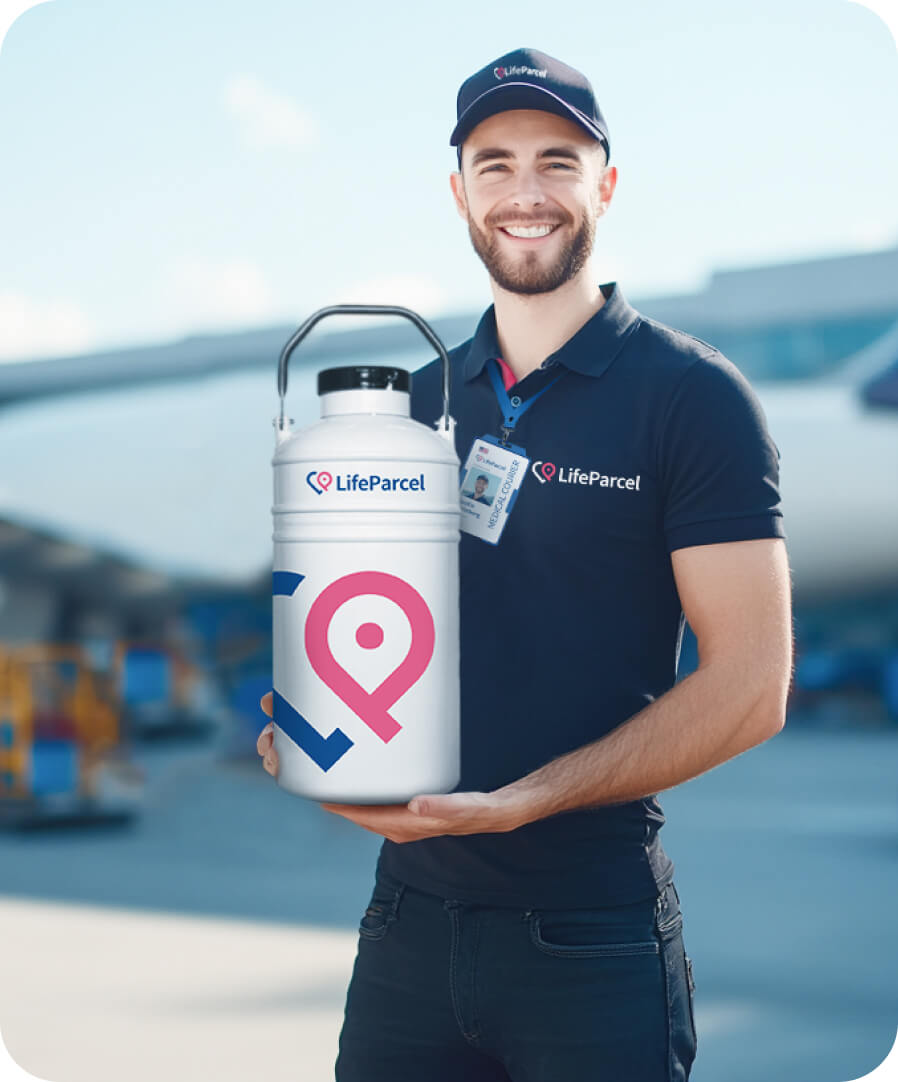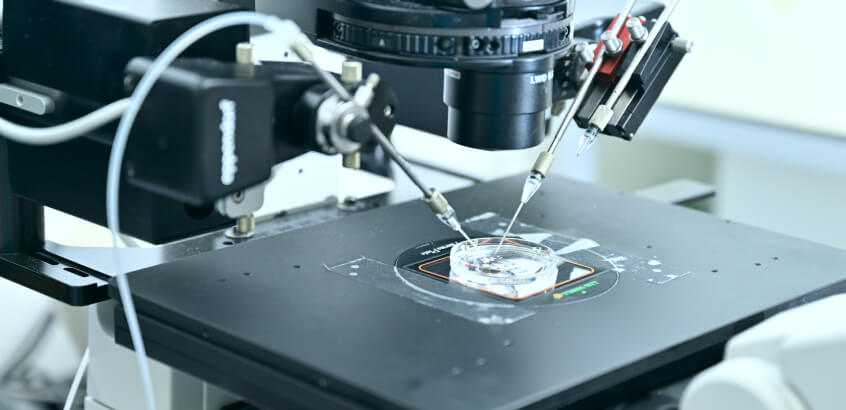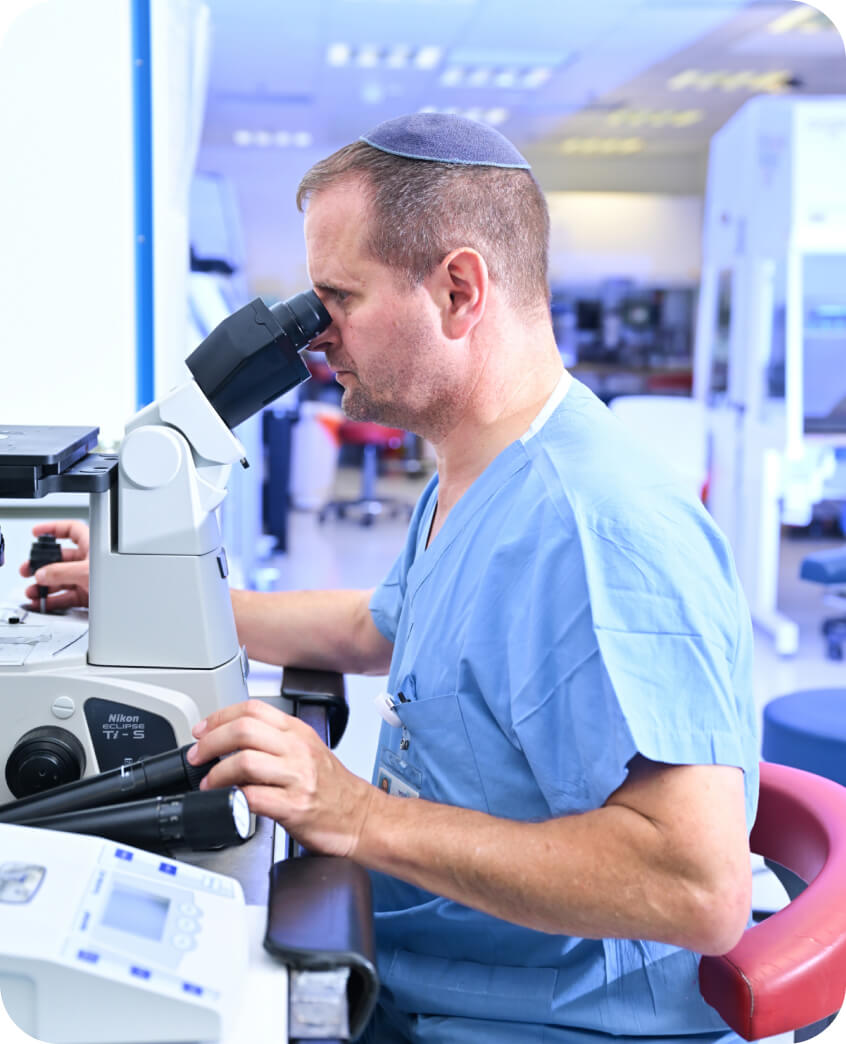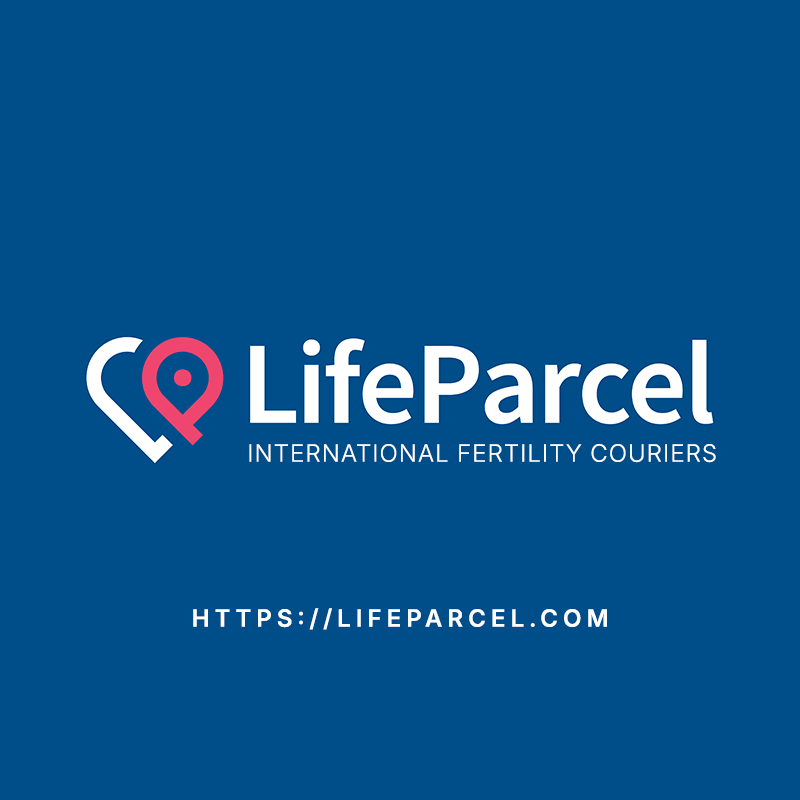Precision in Fertility Transport
When transporting IVF materials like eggs, sperm, or embryos, precision is everything. Even slight temperature deviations can result in irreversible cellular damage, compromising fertility material safety. This makes secure fertility material transport not just a preference, but a clinical necessity.
This article explores how liquid nitrogen dry shippers are the cornerstone of reliable IVF transport. We’ll examine the specialized design behind these containers and why they are essential to cryogenic logistics, ensuring reproductive materials remain safe, viable, and protected during transit.
What Is a Liquid Nitrogen Dry Shipper?
A liquid nitrogen dry shipper is a specialized container used in cryogenic logistics to transport biological materials at ultra-low temperatures. These units are filled with liquid nitrogen that is absorbed into a porous inner lining, allowing for vapor-phase storage without free-flowing liquid. This design helps maintain temperatures near -195°C while minimizing spill risks and enhancing safety during handling and transport.
In the context of IVF transport, liquid nitrogen dry shippers have become the industry standard. Their ability to sustain extreme cold conditions without leaks or fluctuations makes them ideal for secure fertility material transport over long distances and across borders. These shippers are engineered for resilience and precision, two essential qualities for reliable fertility material transport.
Why IVF Materials Require Cryogenic Stability
Fertility materials such as eggs, sperm, and embryos are biologically delicate and must be stored and transported at -195°C to remain viable. At this ultra-low temperature, all cellular activity halts, preserving the material’s current state without the risk of degradation. Any deviation from this threshold – even for a short time – can compromise fertility material safety, and the chances of a successful fertility procedure.
Improper handling or inadequate temperature regulation during IVF transport can lead to irreversible cellular damage, rendering the reproductive material unusable. That’s why cryogenic stability is essential. Reliable systems that prevent temperature fluctuations are critical to ensuring each specimen arrives at its destination intact and ready for use in treatment.
Advantages of Using Dry Shippers for IVF Transport
One of the most significant advantages of using liquid nitrogen dry shippers is their ability to maintain consistent temperatures throughout transit. These containers safely suspend materials in a nitrogen vapor environment, eliminating risks of direct liquid contact and reducing the chance of contamination. Their design ensures fertility material safety by keeping internal conditions stable for extended periods, even during long or delayed travel.
Additionally, dry shippers are compact, spill-proof, and built to meet international safety and packaging regulations, making them ideal for global IVF transport. Their portability, durability, and compliance with air cargo standards streamline customs clearance and minimize transit complications. These features make them a cornerstone of reliable fertility material transport in cryogenic logistics.
Monitoring and Maintenance During Transit
Today’s liquid nitrogen dry shippers often come equipped with integrated sensors and tracking technology, enabling constant oversight during transport. These sensors monitor internal temperatures in real time, sending alerts if even minor deviations occur. This level of cryogenic innovation ensures secure fertility material transport by providing visibility and immediate response capabilities throughout the journey.
Unlike older cryogenic containers that may require refills or hands-on maintenance mid-journey, modern dry shippers are designed to maintain stable temperatures for extended durations without intervention. This eliminates the need for risky handoffs or refueling stops and dramatically reduces the complexity of long-distance fertility material transport. It’s a simplified, secure solution that enhances safety from pickup to delivery.
How LifeParcel Uses Dry Shippers to Ensure Safety
LifeParcel follows a strict protocol when preparing liquid nitrogen dry shippers for IVF transport. Each shipper undergoes pre-trip validation to ensure structural integrity and proper nitrogen absorption. Once specimens are safely loaded, the container is sealed, documented, and paired with a real-time tracking system. LifeParcel’s team monitors the shipment throughout transit to ensure consistent cryogenic conditions and regulatory compliance.
This meticulous process is key to LifeParcel’s 100% success rate in fertility material transport. As a trusted IVF courier company, LifeParcel uses advanced dry shipper technology to ensure fertility material safety with every shipment. Clients can feel confident knowing their reproductive materials are handled with expert precision and safeguarded by industry-leading tools.
The Gold Standard for IVF Transport
Liquid nitrogen dry shippers are the backbone of safe, effective IVF transport. Their ability to maintain consistent ultra-low temperatures without the risk of spills or contamination makes them indispensable in preserving the viability of eggs, sperm, and embryos during transit. For patients and clinics alike, using this technology is key to ensuring the secure fertility material transport that successful outcomes depend on.
Choosing the right courier means choosing peace of mind. LifeParcel combines the precision of liquid nitrogen dry shippers with expert handling and constant oversight to protect every shipment. For families embarking on their fertility journey, partnering with a provider that prioritizes safety and reliability in IVF transport is essential, and LifeParcel delivers on that promise.





